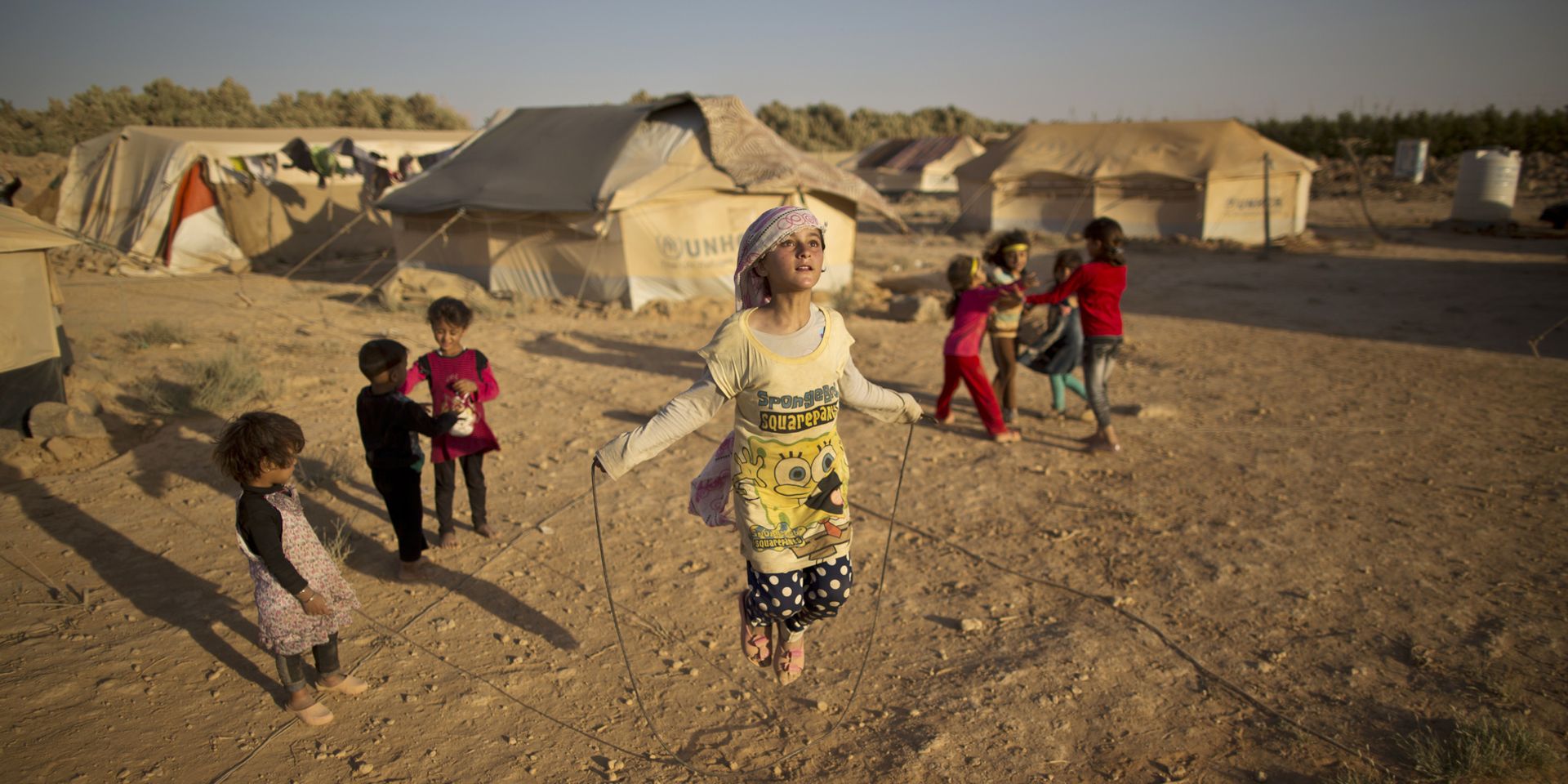COVID-19 exacerbates situation for displaced people
Millions of people who have been displaced by armed conflict and natural disasters are currently seeking refuge. This situation is being exacerbated by the COVID-19 pandemic. Swiss Humanitarian Aid is helping international organisations in the fight against COVID-19, including in refugee camps, which ties in with the other efforts of the Swiss Agency for Development and Cooperation (SDC) to deal with the current crisis.

People who are on the run are exposed to risks because of COVID-19, which makes their situation even harder. © Keystone
At the end of 2019, the number of people forced to seek refuge because of armed conflict and natural disasters worldwide amounted to 79.5 million. This figure includes 29.6 million refugees. In addition to being forcibly displaced, they are now facing another danger: COVID-19. Millions of displaced people do not have houses where they can follow social distancing rules or protect themselves from infection. Many do not have enough water, soap or disinfectant to clean their hands. For those not living in camps, the pandemic has had serious economic repercussions. Because of the containment measures, they have lost their livelihoods and can no longer send their children to school.
Cooperation with UNHCR
Switzerland supports a number of projects and organisations that help refugees and other displaced people. One of its main partners in this area is the United Nations High Commissioner for Refugees (UNHCR), which received CHF 30 million from Switzerland this year for operational support. In 2019, around 20 specialists from the Swiss Humanitarian Aid Unit were seconded to the UNHCR to provide assistance in a number of sectors: rehabilitating drinking-water supply systems, improving reception facilities, and providing care and protection for children in camps.
COVID-19 in addition to forced displacement
A large number of refugees are in countries where conditions were difficult even before the COVID-19 pandemic began. In certain overcrowded refugee camps, it is almost impossible to contain the spread of the virus. People live in cramped, unhygienic conditions and health systems are inadequate.
In response to this, Switzerland has modified its programmes and released additional funds via the SDC. One example is an additional CHF 0.5 million for a Swiss Red Cross project in Bangladesh, helping to increase patient care capacity for COVID-19 cases in the various health centres of the overcrowded Cox's Bazar refugee settlement. Similar actions have been carried out in Iraq, Syria, South Sudan and other humanitarian contexts. Switzerland has also sent sanitation supplies to accommodation sites for migrants and refugees, particularly in Greece and Serbia, with the aim of containing the spread of COVID-19.
To date, the SDC has allocated over CHF 203 million from existing budgets for humanitarian aid, bilateral development cooperation and global cooperation in order to combat the COVID-19 pandemic. On 29 April 2020, the Federal Council approved a CHF 400 million contribution to help mitigate the effects of the pandemic – particularly in developing countries, many of which host large numbers of refugees.
DISPLACED exhibition as a teaching aid
What does it mean to have to leave your home, job, family and country behind? DISPLACED addresses these issue from different perspectives, presenting illustrative biographies that retrace the arduous journeys refugees are forced to make. It is a joint project by the Federal Commission on Migration (FCM), the State Secretariat for Migration (SEM), the Office of the United Nations High Commissioner for Refugees (UNHCR) and the Swiss Agency for Development and Cooperation (SDC).
Coinciding with World Refugee Day on 20 June 2020, DISPLACED is now available online. It works as a digital teaching aid, giving young people the chance to find out about the different stages of a refugee's journey in order to help them better understand the complex subject of forced displacement and asylum. The online version is in English, French, German and Italian.
